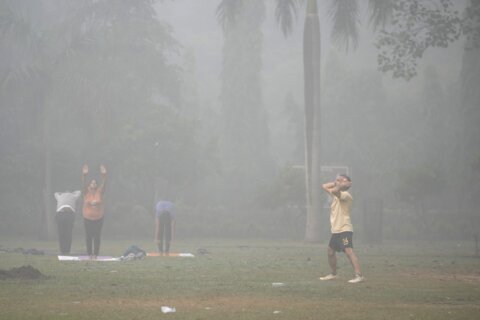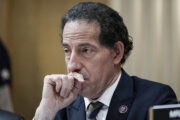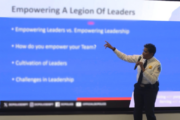Natural disasters can cause devastation and major disruptions for cities, and that sometimes includes college campuses.
Hurricanes, wildfires, tornadoes and other natural disasters can displace college students from residence halls, force class cancelations and render university services inaccessible for extended periods, posing unique logistical problems for students, experts say.
College students rarely have insurance policies on their place of residence or belongings, and evacuation is challenging for some — particularly international students and those whose families live far away. Whether from a pause in classes or a traumatic event, other challenges may arise involving financial aid, lost income, a drop in grades or mental health issues.
“One of the challenges for many of our students can be that they are sometimes not able to work for several days because the places they work are also disrupted and/or the students leave the area for an evacuation,” Alicia Caudill, executive vice president for student affairs at College of Charleston in South Carolina, wrote in an email. “Losing several days of income can be very challenging for some students. Families may have lost wages, experienced property damage, etc. that can certainly affect the wellbeing of their students and perhaps affect the students’ financial needs as well.”
Experts urge students and families to be prepared, and to start by asking schools about the types of natural disasters they could face in that region and how the campus is prepared to handle them. A school’s public safety department typically is the first place to check. An emergency services office is also a good resource, says Jon Weber, director of emergency services and insurance and risk at Pepperdine University in California, which faces wildfire and earthquake risks. “If a school doesn’t have those answers, continue to ask,” he says.
Here are questions to consider so you’ll be prepared if a natural disaster affects your campus:
[Read: College Campus Safety: Questions to Ask]
Will Classes Be Canceled?
This depends on the university and the severity of the natural disaster. Schools in immediate danger will likely close entirely for a brief time, especially if there’s an evacuation order. During longer disruptions, many colleges will resume classes via online instruction before returning in person.
For example, when Hurricane Helene hit Asheville, North Carolina in late September 2024, severe flooding and damaged roads led the University of North Carolina–Asheville to pause classes entirely for a month before returning online in late October 2024 through the remainder of the semester. In 2018, Pepperdine closed for 10 days during the Woolsey Fire in Los Angeles and Ventura counties, then resumed classes online before the campus was fully functional.
“Our regional accreditation lays out guidelines for how much class can be missed before it needs to be made up,” Caudill says. “But, we build in storm days to our semester schedules to allow intentional days for making up work. Exams could be delayed or the academic calendar could be altered depending on the situation.”
Faculty members also have some discretion, especially in cases where students suffer significant loss or issues after a disaster, Weber says. He encourages students to check email regularly for messages from their school or professors, regardless of class cancellations.
Students who need specific support while school is out of session are typically directed to a phone number or office that can help. For example, UNC–Asheville set up a call center for students needing mental health services while campus was shut down after Hurricane Helene and also had an email address specifically for fielding hurricane-related questions.
Other schools typically have a similar setup with a webpage or social media account giving updates.
How Will My Financial Aid Be Affected?
Although federal financial aid is typically tied to a student’s period of enrollment, provisions can be made if schools are forced to close for any period of time due to a natural disaster. Schools usually consult with their regional accreditation office first to discuss options for modifying the school calendar.
The National Association of Student Financial Aid Administrators outlines how certain relief resources are available to schools in the wake of a disaster, including study abroad programs and academic calendar changes.
If the length of an academic year is altered or a school is temporarily closed due to a natural disaster, the U.S. Department of Education “will determine the continued eligibility of the institution’s programs and students on a case-by-case basis.” For a lengthy closure, the department encourages a school to create an agreement with another university so its students can study there and maintain federal financial aid eligibility.
Weber says most schools will work with students to minimize any effects on their financial aid.
[Read: An Ultimate Guide to Understanding College Financial Aid.]
What if I Can’t Evacuate?
If you can evacuate ahead of a hurricane or wildfire by going to stay with family or leaving the area by car or plane, you should — but the only option for some students is to stay in the city where they attend college.
In those cases, schools typically arrange to take students to a safe place elsewhere — perhaps a local shelter or nearby university in a safer location — and provide meals during that time. For example, students at the University of South Florida were taken to a local middle school to shelter during Hurricane Milton in October 2024.
What Do I Need for an Evacuation?
Students who live in areas at high risk of natural disasters should have a checklist of items to pack and take with them if they need to evacuate, Caudill says. Some key items are:
— Identification and insurance cards
— Credit cards and cash
— Medication and personal care items, such as toiletries
— Laptops, tablets, books and anything else needed for academic work
— Written numbers for key contacts in case a cell phone dies and there’s no access to power
— Several changes of clothes, a pillow and blankets
— Electronics and chargers
— Batteries and flashlights
— Water bottles, nonperishable foods and snacks
— Card games, books or other items to help pass time
Also, remember to clean out your refrigerator before leaving; fill your car’s gas tank as early as possible; arrange accommodations for any pets, including enough food and water; and let your family — or a trusted contact outside the evacuation area — know where you plan to go.
What Happens if My Belongings Get Damaged?
Schools have insurance policies on university-owned items, including dorm furniture like beds, dressers, desks and chairs. But those policies typically don’t cover students’ personal belongings.
For personal items, Weber recommends getting a renter’s policy or finding out whether their belongings — in on-campus or off-campus housing — can be covered by their parents’ renter’s policy or homeowner’s policy. “If that’s still a hardship, we turn that over to our student care team,” he says.
[READ: Resources for College Students Facing Housing Insecurity.]
At Pepperdine, this team helps students with a range of needs, such as getting food and replacing electronic devices. In some cases, schools may even pay to replace items like cellphones or laptops.
“We have replaced items that may have gotten wet if there was water intrusion in a room, for example,” Caudill says. “On a larger scale, we would navigate our own insurance policies as well as those remedies offered from state and national agencies.”
When students are evacuated, College of Charleston assesses all on-campus living spaces and works to fix any damage to university equipment before students return, Caudill says. If a student’s on- or off-campus living space is uninhabitable due to damage, the school places students in temporary housing until repairs are complete.
How Will Athletic and Social Events Be Affected?
Schools typically aim to keep student activities as normal as possible when a disaster strikes. Athletic teams generally continue competing and temporarily hold practices and games off campus or at nearby universities if necessary. If a team is already traveling, College of Charleston typically holds players in that location until the storm passes. Other schools may do the same.
Since clubs and recreational events like intramural sports are important to the college experience, schools want them to continue during extended closures. Universities are usually willing to accommodate other schools’ student activities, experts say.
“I find that colleagues and other higher education institutions are very willing to help however they can,” Caudill says. “So we would allow our students to engage in recreational or other activities at other campus(es) if those institutions were able to host our students and our students were near those institutions.”
Searching for a college? Get our complete rankings of Best Colleges.
More from U.S. News
How to Choose Between Urban, Suburban and Rural Colleges
What to Consider When Visiting a College Town
In-State vs. Out-of-State Colleges: Where Should I Go?
College Students and Natural Disasters: What to Know and Do originally appeared on usnews.com







